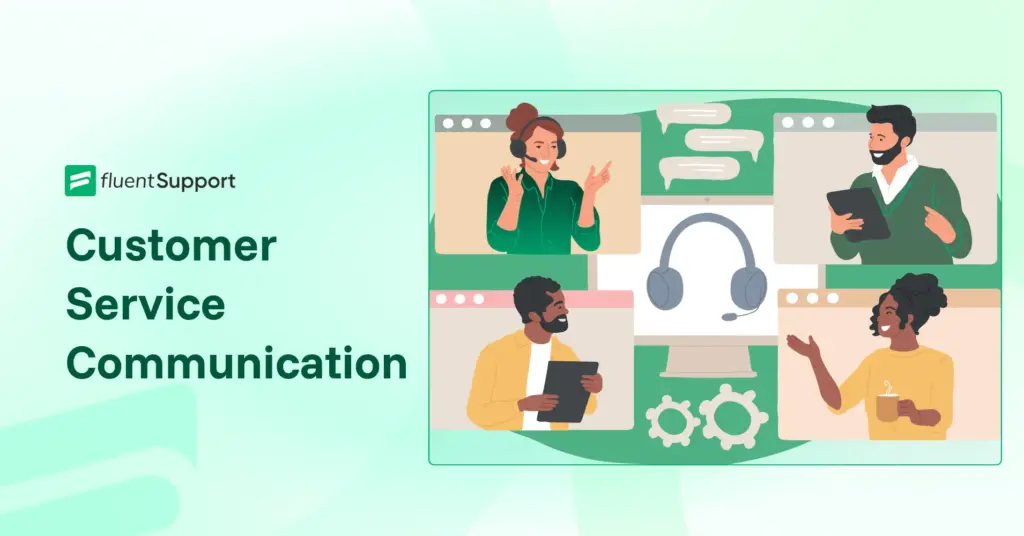
Customer Support Definition and Why it’s Important for Your Business
By Nishat Shahriyar
May 20, 2022
Last Modified: November 13, 2025
Customer support is changing day by day.
Modern customer support is not as exact as classic customer support. Customer support is now not an extra wing of the business. It is now considered a significant part of the business and its company culture.
Customer support is considered a feature that you don’t need to explain the benefits for; companies are investing more in customer support as a part of products and services, giving them a competitive advantage over the market, which is difficult to copy.
Customer support is now more than managing tickets, replying to customers’ emails, or answering customer calls. In an era of online communications, customer support is a tool for businesses to build personal connections with customers.
In this post, we will learn what customer support is and why it is vital for your business.
Definition of Customer Support
Customer Support is the services you offer to help your customers make the most value of your products and services.
Customer support varies from industry to industry. Some industry solely depends on call center customer support; on the other hand, for some business, you can manage customer support through help desk software, self-service tools like a knowledge base, community forums, or even a subreddit community.
Customer support’s primary goal is to help customers in their onboarding process and troubleshoot their daily problems during the first contact to save time and make them familiar with new features or products.
Sometimes companies use terms like ‘Customer Service’ or ‘Customer Success,’ but there’s little difference with “Customer Support”; most are the same. The main goal is to help people use your product or service and make sure they get the best value out of it.
Customer Support Evolution
Customer support evolved rapidly over the centuries. Before the digital era, customers had no freedom to choose their vendors or had enough power to share their reviews or opinion.
Local business owners have a direct connection with customers. But customers had little access to their options, lack of support, and fewer resource to learn more about the business and products.
Customer service changed over time from 1960 with telephone-based business. Besides post, call centers were the only options to handle customer queries and send solutions. However, it was a fast change in the customer service sector because the call center was the immediate solution provider for huge industries.
But costs increased over time, and companies started cutting call center costs in 1980. They started relying heavily on third-party companies offering customer service through the call centers, making it more impersonal, lengthy, and unuseful. Customers had no choice at all.
Then, the internet changed everything.
It changed customer service. From community forums to social media, independent review sites gave customers complete freedom to learn from others’ experiences. Customers can now share their experiences with other users without the approval of companies. A dissatisfied customer can now reach millions through a youtube video, blog post, or just a viral tweet.
One voice now matters. And one voice can change a lot!
Just look at this “United Breaks Guitars” story.
It’s an example of one voice matter. Musician Dave carrol’s guitar was broken by United Airlines while traveling and they refused to compensate him. Then he uploaded this epic song to youtube to address the situation, which went viral and United Airlines had to issue a public apology to Dave Carrol. The significant effect was that United Airlines’ stock price fell 10%, losing $180 million in value.
Check out the ‘United Breaks Guitars’ Video:
Today’s digital era changed customer service in a new way; companies are now investing in customer support more and more, treating it like a product feature. Because businesses learned customer support is the only way to stand out in a competitive market and they understand how great customer support can achieve amazing ROI. Customer support is not just an extra service; it is now the core of the business.
Customer support plays a part in company decision-making, influences sales big time, and helps gain more word-of-mouth marketing. From customer acquisition to retention, customer support is a crucial element of a company’s success.
Why Customer Support is Important for Business
For a company to achieve success, they need to measure these metrics:
- Customer happiness
- Customer engagement
- Customer loyalty
- Customer feedback
But how can businesses measure these metrics effectively?
The answer is “Customer Support”.
Customer support influences these metrics more than any other part of the business. Businesses can integrate customer support in every area of their business, from customer acquisitions to the onboarding process, and influence customer support metrics from top to bottom.
Bad customer service can hamper business growth, raise marketing costs, increase customer churn rate and reduce customer retention. Only excellent customer service is the way to ensure this does not happen with your business.
Define your approach to customer support first, set your brand’s tone of voice across all mediums and follow them rigorously.
Help your customers to help themself; most users don’t need your help to find the solutions in this internet age. Give them the tool and resources, only provide human help while complex issues arise. Appoint empathic people in the right places and train them as your company need.
Deliver Superfast Support!
Provide customer solutions through one-to-one communications right from your help desk software.
How to Deliver Excellent Customer Support?
Good customer service is not that hard. All it needs is the company’s direction to become a customer-centric business.
Take a look at Zappos, it’s CEO Tony Hsieh made it clear in their company mission statement:
‘to provide the best customer service possible. Deliver WOW through service. ‘
You can tell from the one line how an online shoe company is focusing solely on “Customer Support”. And how does that work for them?
“Amazon purchased Zappos for 1.2 billion dollars in July 2009 in an all-stock deal.”
They were making millions of dollars in revenue from returning customers at that time. They did it by focusing entirely on customer support.
Let’s tell you a Zappos story. One customer, Zaz Lamarr’s mother died recently; her mother’s shoes needed to return before she died. Zappos emailed her asking about the status of the shoes and she had to tell them what happened to her mother. Zappos told her they would take care of all costs and the courier would pick up the shoe without spending Lamarr any extra.
What happened next was a pure heart-touching moment. In Zaz Lamarr’s words,
“Yesterday, when I came home from town, a florist delivery man was just leaving. It was a beautiful arrangement in a basket with white lilies and roses and carnations. Big and lush and fragrant. I opened the card, and it was from Zappos. I burst into tears. I’m a sucker for kindness, and if that isn’t one of the nicest things I’ve ever had happen to me, I don’t know what is.” Now, that is what you call “going the extra mile.”
Zappos did not have to do it, but they did it because it’s in their core value to take care of their customers.
Here is another story involving Zappos CEO Tony Hsieh:
One night Tony Hsieh took one of his clients out for a night, but the bar was closed. So they had to go back to the hotel room. The client was craving pizza, but room service was closed for that night.
Tony jokingly said the client should call Zappos call center and ask them for help in a funny moment. Even though Zappos sells shoes, he was confident in his company’s customer support.
Not only did the Zappos rep take the call at 2 am, but they also found 3 open pizza shops near the hotel and ordered for the client.
What customer support!
What length would your company go for your customer? Ask yourself!
You can gain a significant market share, keep customers loyal, and win the hearts of frustrated customers with excellent customer service. Here are 12 ways to do that:
1. Listen for understanding
2. Provide omnichannel support
3. Be empathic
4. Be creative while solving problems
5. Deliver fast support
6. Personalize customer service
7. Help customers help themselves
8. Collect customer feedback and analyze
9. Be proactively helpful
10. Become a product expert
11. Empower your agents
13. Follow up on customer interactions
Moving forward
Happy customers are the fuel for any business growth. Making a happy customer into a loyal one is the secret of company success. Customer support can help you create a loyal customer base, build long-term relationships with them, and retain business sustainability.
Become a customer-centric company, develop core values tied to customer support and make your customer support team part of every department of your company. Make customer support a feature by building an excellent support team. Help your customers achieve their goals rather than focusing solely on business revenue.
Your own Support Portal in 5 minutes!
Start off with a powerful ticketing system that delivers smooth collaboration with powerful integrations.












Leave a Reply